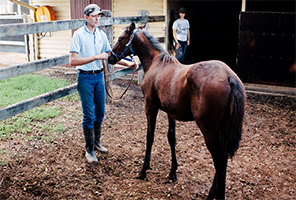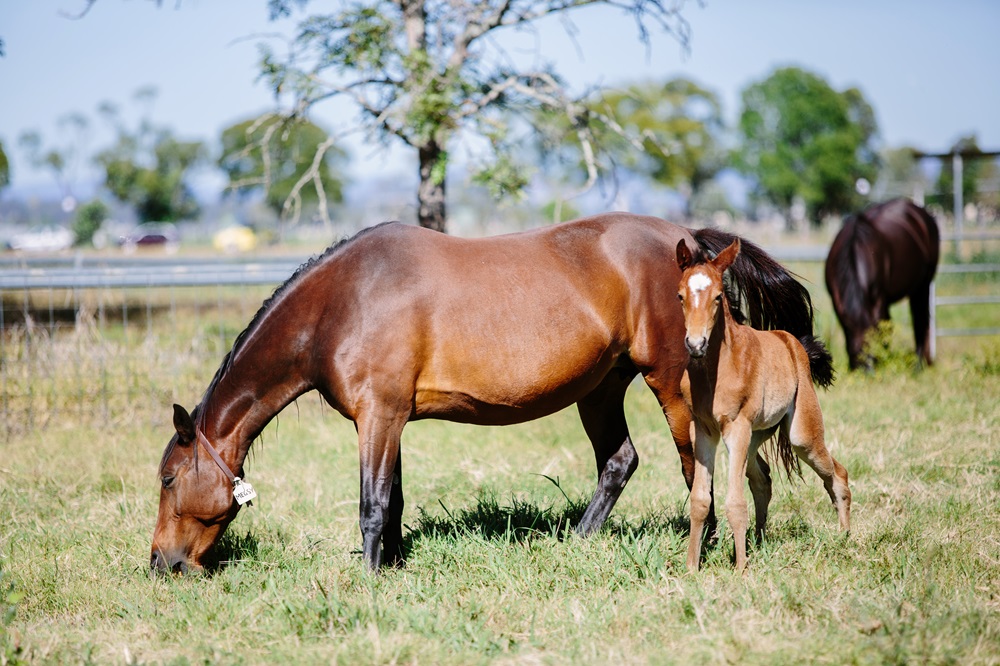
Some people take a while to find their career ambition. Not so for UQ Gatton Campus Equine Unit Coordinator, Mitchell Coyle, now in his fourteenth year in the role. Mitch found his calling years ago when, as a Technical Officer, he discovered Gatton Campus.
Mitchell’s day starts with an inspection of the 103 horses in the Gatton herd used for teaching in the School of Veterinary Science and School of Agriculture and Food Sustainability as well as in the Registered Training Organisation, UQ Skills equine/animal curriculum and programs. Animal welfare is a top priority. Tied into the inspections is a head count and check for illnesses or injuries overnight. And, of course, every healthy animal’s favourite - feed runs.
The equine unit is also home to a boutique Australian stock horse breeding program, used in part to train students on equine production practices. Students are taught nutrition, handling and how to do physical examinations, and are exposed to brood-mares’ foaling.
In fact, foaling times are among Mitchell’s favourites in the year, when he gets to see the new foals for the first time. In 90 per cent of cases, mares will foal down between 1am and 4am, when the Gatton Campus is at its most serene and beautiful. Watching students experience their first foaling is as rewarding as seeing the birth of the foal itself.
Mitchell feels fortunate to have the opportunity to meet students from all over the world, see them achieve learning milestones and grow into the veterinarians they will one day become, when their education and dreams align.

Watching the students learn, and the horses learn with them, is almost serendipitous,” Mitchell said.
Apart from teaching, Mitchell works with researchers who are building new knowledge and addressing critical issues in equine health. For him, it is gratifying to see the way the equine community is actively engaging with researchers. There is an increasing bond and an integration of scientific knowledge and practical application as understanding of how to manage and care for animals grows. A whole-of-life approach to equine health is leading to better practice, performance, and quality-of-life across the board, from leisure horses to equine athletes.
Mitchell is keen to see more students at UQ Gatton.
“There are huge advantages here – the brilliant academic minds, the facilities, access to livestock and animal herds are comparable to none,” Mitchell said.
“And you can’t beat the community feel and beauty of a campus in the country.”



